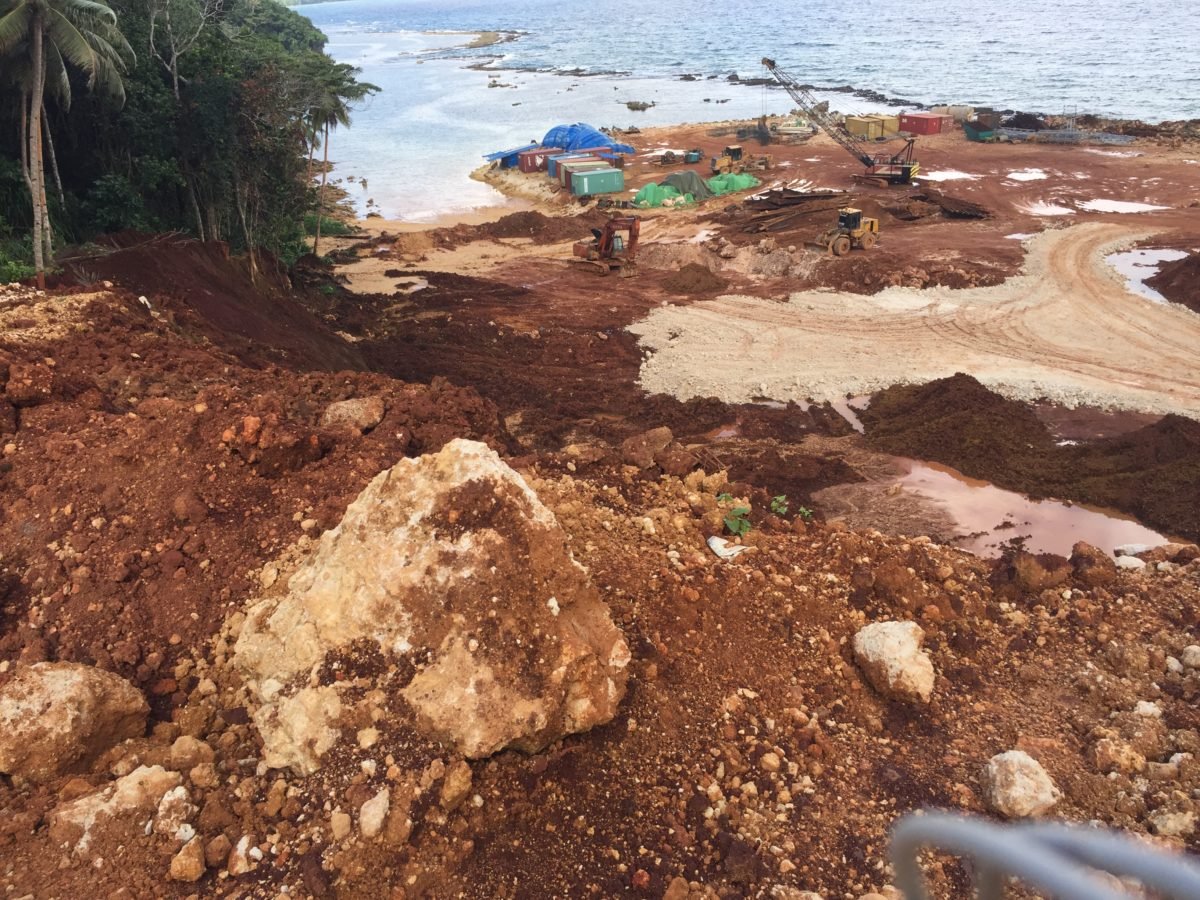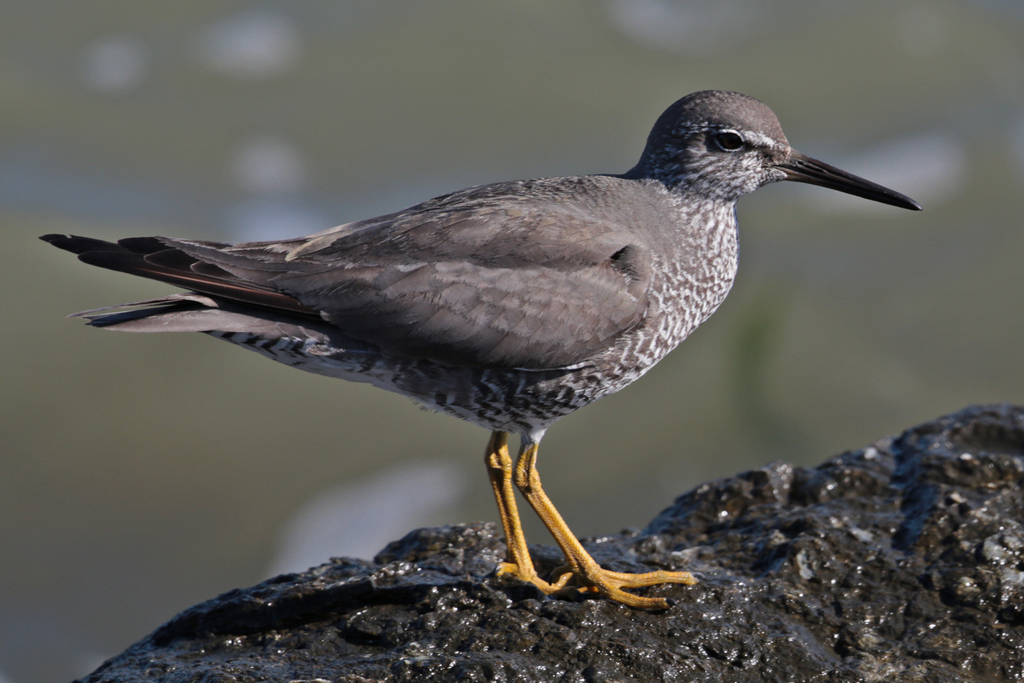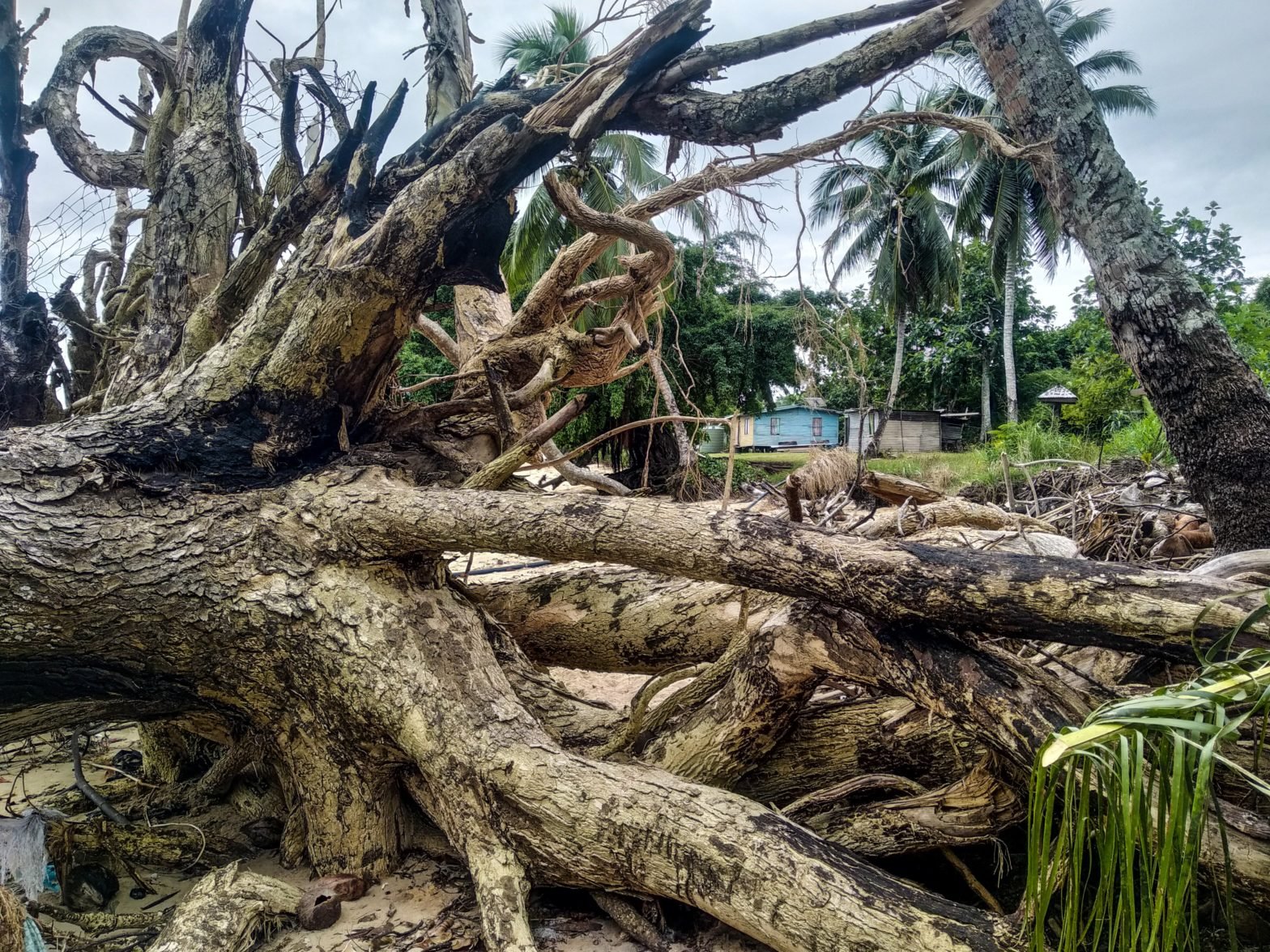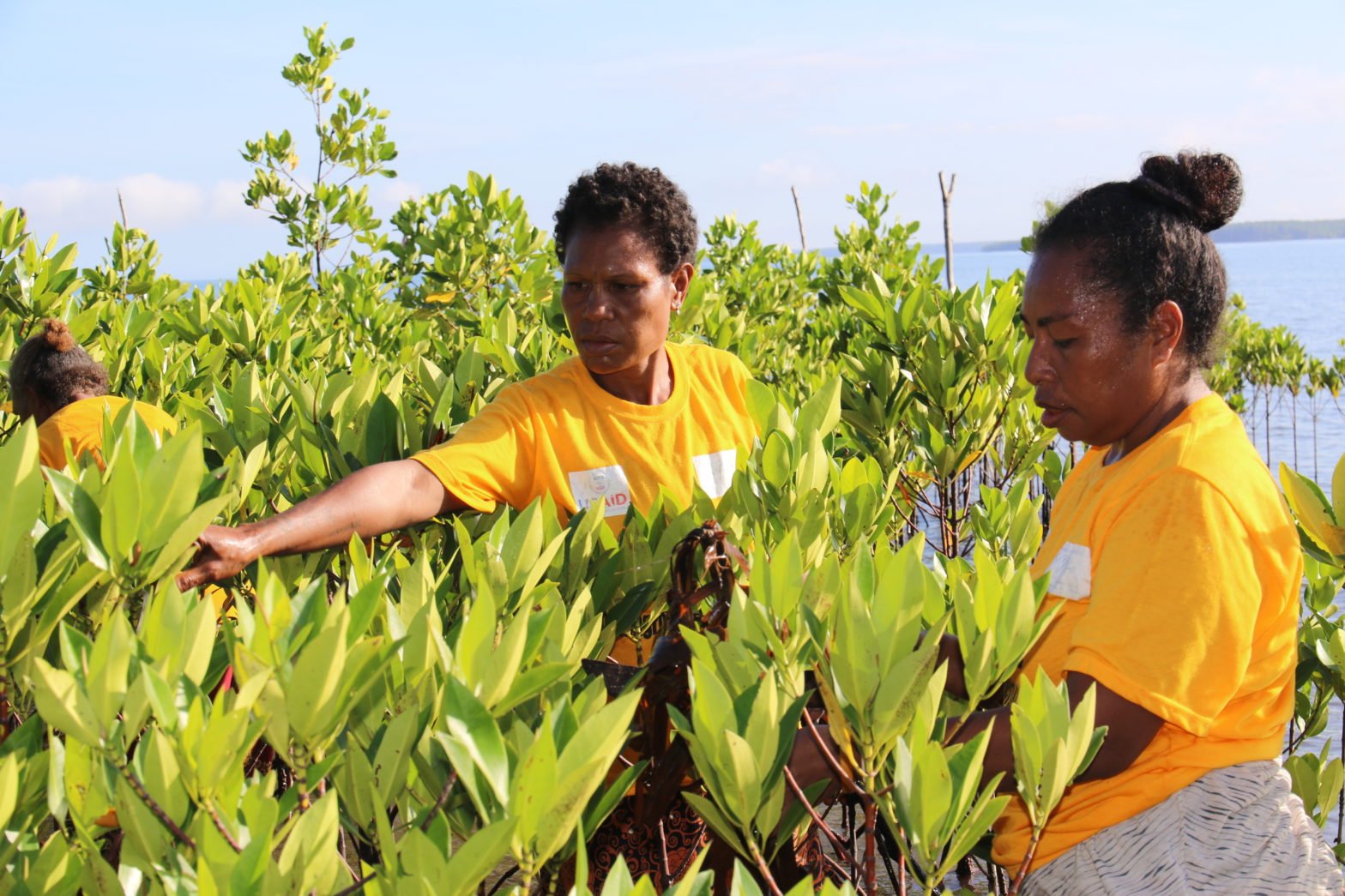The last pockets of bauxite-rich soil in Rennell in the Solomons are being dug up and shipped out, leaving residents with little land for agriculture
The bauxite mining operation in West Rennell has been dubbed “messed up” by the Solomon Island’s highest mining official.
Ministry of Mines Director Nicholas Biliki told SIBC News that the process of land acquisition and the eventual granting of the mining lease to Asia Pacific Investment Development Ltd (APID) was done by the previous government in haste.
“I have to admit here that the way the then-government handled the process of land acquisition and granting the mining lease does not abide by the mining regulations,” he said. “The whole process has been messed up from the start.”
While climate change continues to threaten the island’s lives, human-made disasters are just as costly, placing people’s livelihoods at stake.
For the people of Rennell, the ongoing logging and mining operations have, over the years, torn the rocky atoll apart.
Scatted across the coral atoll are soil pockets where people have long done gardening. But the soil in those pockets is largely bauxite ore. According to landowners and some officials, more than half of West Rennel’s bauxite-rich soil has been mined and shipped out.
“For ages our livelihood depends on soil pockets scattered across the island,” said Ajilon Jasper Nasiu, former Speaker of the National Parliament of the Solomon Islands. “Now, more than half of West Rennell has been shipped out. After mining operations, I don’t know how our next generation will survive.”
The mining, which is concentrated at the western end of the atoll, has largely disadvantaged the majority of the population. Logging operations that have covered the entire island only deepen the pain.
The two mining firms competing for bauxite in Rennell are the Indonesian firm Bintang Mining Company Ltd, sub-leased by APID, and a Chinese firm, World Link Mining Ltd.
Nasiu, too, said the mining operations were rushed and his people will suffer the consequences once the lease expires and they leave the island.
The issue has sparked not only debate but divisions among the Rennell people, said Chief Allen Toupongi, blaming successive governments for the mess.
“Our government has indeed forgotten us. What will be left for us once mining operations leave our shores?” he asked.
Former Solomon Islands Prime Minister Gordon Darcy Lilo defended his government for initially granting the mining lease to the Asia Pacific Investment Development (APID) in 2014, saying his government did the right thing.
“My government granted the mining lease when we were in caretaker mode,” he said. “My minister and director of mines back then, acting under the Mines and Mineral Act powers vested upon them, granted the mining lease. But we agreed on a 20 percent export duty tariff. Not until the next government took [over] from us [did] they reduce the export duty tariffs to zero percent.”
The questions resources owners are asking now are:
What’s the benefit for the country from the Rennell bauxite mining?
What is the environmental, social and economic cost it has on the Rennell Atoll?
The government that took over from the Lilo-led administration admitted that the Solomon Islands have not seen a windfall from the Rennell bauxite mining operations.
“Sadly, the Solomon Islands have not benefited from the Rennell mining operations,” said former Prime Minister Rick Houenipwela.
While the blame game is flaring among government authorities, people on the ground have already felt the pinch of top-level decisions.
Jimmie Festus Tsinahuitu, one of the landowners whose soil pockets have been mined, regretted the decision he made to lease his land in the first place.
“At the moment, I am planning to venture into Kava farming. Sadly, the soil pockets I should use for farming have been mined and shipped out,” he said.
“Before signing up my land, the company promised that I was going to be benefitted,” Festus continued. “But now, I know that I am being fooled to have my soil pockets mined. After all, these are all years of struggles, even to get our small payments from the company.”
Chief Taupongi from the Tingoa Community in West Rennell described the land acquisition as the “cheapest” negotiations he had ever seen. Once the 25-year mining lease lapses in 2033, what is next for the people? he asked.
“Our ancestors have been using these soil pockets for hundreds of years and once these soil pockets are completely mined, who is responsible to keep supplying for our daily livelihood?” Chief Taupongi said.
Nasiu shared similar sentiments.
“Both the national and provincial governments have been making noises about agriculture here and yet they allow mining to keep digging up our remaining soil pockets,” he said. “But once all these pockets are dug out, where else could we practice agriculture? Already we are left with barren rocks here.”
The knock-on effects
The remote atoll is becoming dependent on processed foods from the shops due to a shortage of land to do gardening. Irregular shipping services to the atoll pose yet another challenge.
Meto Kaniko, a mother who spends most of her time gardening to meet her family needs, shared her struggle.
“What we have now is that only a few middlemen are currently benefiting from mining,” she said. “Currently, we have no place to do gardening. Our soil for gardening has been shipped out.”
Meanwhile, Kanika says ships carrying foodstuffs and sundries come sometimes once a month or once every two months.
“People are hungry here now, and once the mining operation stops there [will be] no place for gardening and the people will face problems never seen before,” she said.
The current Renbel Provincial Government has recently realized that they are losers in their land. Provincial Premier Willie Tuhagenga said his government is in talks to halt mining operations in the islands, and pointed to places where mining has benefitted locals to some extent.
“Look at Nauru, it is a small island like us but during their phosphate mining operations, they have businesses and even purchased high rise buildings in Melbourne, Australia. But unlike our case here, even to put food on the table is still our daily struggle.”
Pro-miner John Tsingi’ia, whose soil pockets are currently being mined, said communities have been benefiting all along.
“Benefits are only for those of us who open our land to be mined. Benefits like the development of our football pitch, housing materials, fueling our vehicles, and food supplies from the mining camps,” he said.
But Nasiu reiterated his warning. Apart from food security issues facing the island, the barren rocks left behind by the mining operations will surely take centuries to rehabilitate, he said.
In addition, the damage caused by the 2019 oil and bauxite spills on the marine ecosystem will take ages to recover while landowners are still awaiting compensation for the damages.
Former Renbel Premier Lence Tangosia, who thew his support behind the mining operation and lavishly enjoyed the miners footing his $4 million bills at the Heritage Park Hotel in Honiara, has since called for oil spill compensation.
“The government must act,” he said.
Former Minister for Environment Dr. Culwick Togamana said part of the oil spill challenge was that the Solomon Islands have yet to ratify the Bunkers Convention.
“Recently, we have signed the Bunkers Convention, which was just approved by the cabinet, and the next step was for the Ministry of Foreign Affairs to ratify that. After that, we can have the power to hold those responsible for their reckless actions,” Togamana said.
The Bunkers Convention is the International Maritime Organization’s (IMO) convention adopted to ensure there is adequate, prompt, and effective compensation available to persons who suffered damages caused by spills of oil, when carried as fuel in ships’ bunkers.
The Convention applies to damages caused on the territory, including the territorial sea and in exclusive economic zones of states parties. It was adopted on March 23, 2001, and enforced on November 21, 2008.
Many attempts and visits to get comments from either APID or BMC offices remain unsuccessful.
Officers at the APID and BMC Office in Honiara told SIBC News their managers were still abroad due to COVID-19.
But the World Link Company, whose license was canceled for non-compliance with the mining regulations in 2017, accused the Solomon Islands government of favoritism towards APID and BMC.
The mining is almost a decade into full operation now, but the operations have left so many unanswered questions on West Rennell elders of what the future holds for its next generations.
“Who is going to feed our next generations after mining? Chief Taupongi asked.
The government is currently working on amending the Mines and Mineral Act 1969, which a lot of commentators view as outdated.
At the same time, the government is also busy fast-tracking three additional mining operations to the country.
This feature story is an extract from, “Our last soil pockets,” a documentary about mining operations on Rennell Island. It was produced with support from Internews’ Earth Journalism Network and first published by SIBC News on 26 Nov. 2020.




